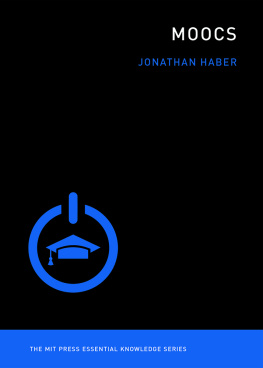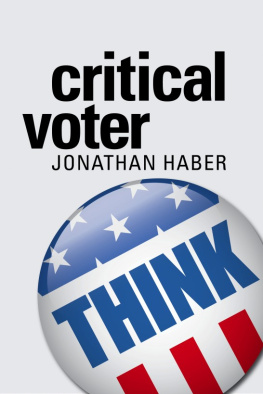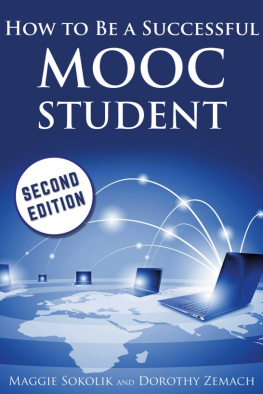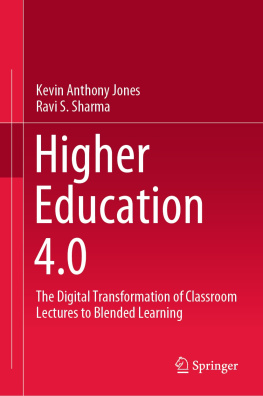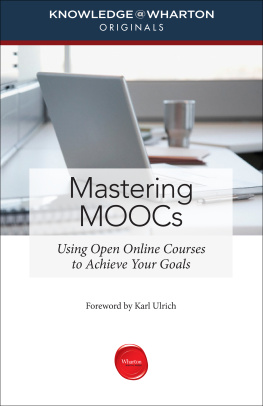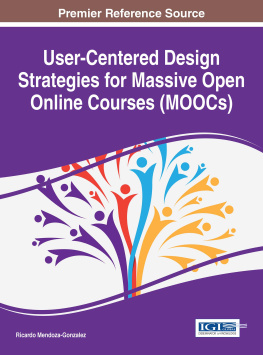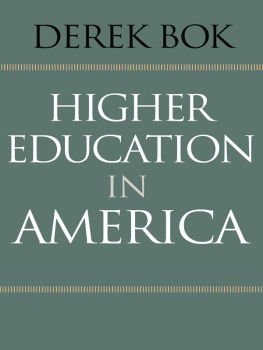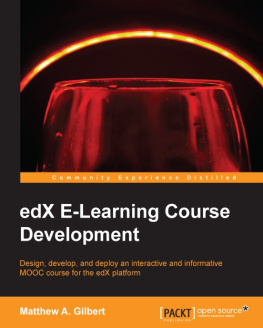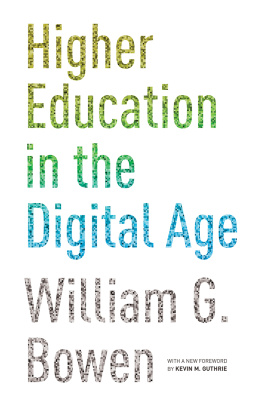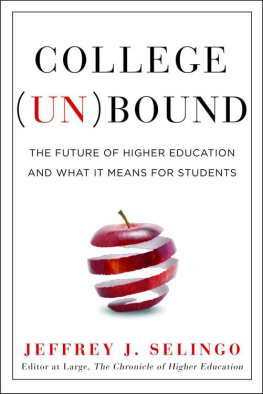MOOCs
The MIT Press Essential Knowledge Series
Understanding Beliefs, Nils J. Nillsson
Computing: A Concise History, Paul Ceruzzi
The Conscious Mind, Zoltan L. Torey
Crowdsourcing, Daren C. Brabham
Free Will, Mark Balaguer
Information and the Modern Corporation, James Cortada
Intellectual Property Strategy, John Palfrey
Memes in Digital Culture, Limor Shifman
MOOCs, Jonathan Haber
Open Access, Peter Suber
Paradox, Margaret Cuonzo
Waves, Fred Raichlen
MOOCs
Jonathan Haber
The MIT Press | Cambridge, Massachusetts | London, England
2014 Massachusetts Institute of Technology
All rights reserved. No part of this book may be reproduced in any form by any electronic or mechanical means (including photocopying, recording, or information storage and retrieval) without permission in writing from the publisher.
Library of Congress Cataloging-in-Publication Data
Haber, Jonathan.
MOOCs / Jonathan Haber.
p. cm.(The MIT Press essential knowledge series)
Includes bibliographical references and index.
ISBN 978-0-262-52691-3 (hardcover : alk. paper)
ISBN 978-0-262-32299-7 (retail e-book)
1. MOOCs (Web-based instruction) 2. Distance education. 3. Web-based instruction. 4. Computer-assisted instruction. 5. Educational technology.
I. Title.
LB1044.87.H27 2014
371.3344678dc23
2014013238
10987654321
Series Foreword
The MIT Press Essential Knowledge series offers accessible, concise, beautifully produced pocket-size books on topics of current interest. Written by leading thinkers, the books in this series deliver expert overviews of subjects that range from the cultural and the historical to the scientific and the technical.
In todays era of instant information gratification, we have ready access to opinions, rationalizations, and superficial descriptions. Much harder to come by is the foundational knowledge that informs a principled understanding of the world. Essential Knowledge books fill that need. Synthesizing specialized subject matter for nonspecialists and engaging critical topics through fundamentals, each of these compact volumes offers readers a point of access to complex ideas.
Bruce Tidor
Professor of Biological Engineering and Computer Science
Massachusetts Institute of Technology
Preface
I walked into the evening cocktail hour (still charmingly referred to as a smoker) at the 2013 American Philosophical Association (APA) Eastern Division Conference even more self-conscious than the job-hunting graduate students nervously prowling the halls. For they at least had PhDs, while my philosophical training consisted of just one year of intense studystudy conducted entirely online, facilitated by massive open online courses (MOOCs) and other forms of free learning.
That field trip served as the final exam for a program that began a year earlier when I had just finished an online class in logic and argumentation entitled Think Again: How to Reason and Argue, offered by Duke University through a company called Coursera. And, after completing the course, it was clear to me that something new and potentially revolutionary was happening in education.
Despite being free, the online class was as good (i.e., as thorough and rigorous) as a college course on the same subject I recall taking as an undergraduate in the 1980s. And apparently this combination of free and good led over 100,000 other people to enroll in the class alongside me.
As it turns out, I was participating in a MOOC, one of the fastest growing and most talked-about trends in higher education.
Unlike previous stories of educational transformation that played out haltingly over years or even decades, the rise of the MOOC was occurring within the highly compressed timeframe of an Internet phenomenon. MOOCs were all but unknown outside of the work of a few education specialists in the summer of 2011 when Stanford University decided to open up Web-based versions of some of its most popular computer science courses to the world. And when enrollment in those classes climbed into the hundreds of thousands, a major education and technology news storynot to mention a new market opportunitywas born.
That market opportunity was seized upon by the very Stanford professors whose courses first drew those outstanding numbers, including Sebastian Thrun, who founded Udacity, and Andrew Ng, who founded Coursera along with his Stanford colleague Daphne Koller. And not to be outdone by these West Coast startups, Harvard and MIT each invested millions to create the nonprofit MOOC provider edX in May 2012.
So by the time I had enrolled in Courseras Think Again, there were already hundreds of massive online courses being taken by millions of students around the globe. And the combination of huge student enrollments, millions of investment dollars, and decisions by name-brand universities to start giving courses away for free made MOOCs a red-hot educational news topic for both the education and mainstream media.
Early coverage seemed positively giddy at the thought of MOOCs disrupting a traditional college experience often condemned for being both overpriced and trapped in the past. Star columnist Thomas Friedman dedicated multiple New York Times opinion pieces to the subject,
Unsurprisingly, this type of technological utopianism prompted a backlash, and by the spring of 2013 the naysayers were in the ascendant, declaring MOOCs to be both academically worthless and a threat to the entire edifice of higher education.
Having had a positive (albeit not yet life-transforming) experience with my first MOOC class, much of this debate seemed to be both extreme and uninformed. Most of the people engaged in these arguments and counterarguments, be they college administrators and educational policymakers or teachers and students, seemed united in not having much experience with real live MOOCs, except for professors who may have taught one or students who enrolled inand may have even completedone or two.
The voice I felt was missing in these heated yet vital discussions was that of a student who had not simply dabbled in MOOC courses, but who had completed enough of them to be able to determine how well the experience as a whole compared to a traditional college education.
It was then that those three words that tend to send shudders through my household were uttered: Why not me?
And so I began my own experiment within the greater MOOC experiment called Degree of Freedom, which required me to complete the same number of courses one would take to obtain a four-year liberal arts degree in just twelve months using only MOOCs and other forms of free learning.
While that undergraduate degree I had earned in the 1980s (at Wesleyan University) was in chemistry, my interests have since moved more toward history and the humanities. That, combined with curiosity over whether MOOCs could cut it beyond the computer science subjects they are still most famous for led me to organize my one-year BA project around a liberal arts major (philosophy).
While an important goal of this experiment was to quickly acquire and communicate the types of student-centric experiences one can gain only by trying the widest possible range of platforms, institutions, subjects, and professors, work on Degree of Freedom also brought me into contact with the people deeply engaged with the MOOC experiment, including the founders of the major MOOC providers, instructors pushing the edges of online learning, and students of all ages creating their own unconventional learning paths.
It was through this intense process of studying, writing, and discussion (which I eventually realized constituted a second major, in MOOCs, with this book serving as my senior thesis) that I realized massive open online courses were neither a panacea to the crisis in education (a crisis people are far happier to rail against than define) nor the terrifying threat condemned by doomsayers. Rather, they represent a phenomenon following along a well-worn timeline for initially overhyped but still transformative technologies that eventually find a plateau of productivity from which they can do their slow-but-steadily disruptive work.
Next page
